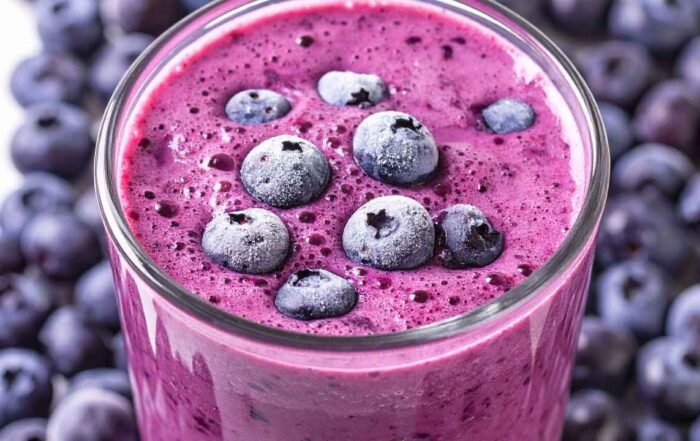In this Article
- Understanding Caffeine and Its Addictive Nature
- Am I Addicted to Caffeine? Recognizing the Signs
- What’s More Addictive Caffeine or Nicotine?
- How Long Does It Take to Break a Caffeine Addiction?
- How to Get Rid of Caffeine Addiction Naturally
- Treatment for Caffeine Addiction: When to Seek Help
- Building a Healthier Relationship with Caffeine in 2025
- Final Thoughts: Breaking Free from Caffeine Addiction
- Frequently Asked Questions about Caffeine Addiction (FAQs)
- Leave A Comment Cancel reply
- Related Posts
- Sign up to the newsletter

Every body drinks coffee! Right? and Its ok to crave it 24/7. Right? If you are like this than maybe you should ask this to yourself “am I addicted to caffeine”. As much as it can boost a morning and make it from 10 to a 100, getting addicted to caffeine can lead to some issues.
Understanding Caffeine and Its Addictive Nature
What Is Caffeine and How It Affects the Brain
Naturally present in coffee, tea, chocolate, and many energy drinks is caffeine, a natural stimulant. Eating caffeine suppresses adenosine receptors in your brain, adenosine is the substance that makes you feel fatigued. Caffeine maintains your alertness and wakefulness by stopping these receptors. More adenosine receptors are made in your brain as it adjusts to frequent caffeine consumption, therefore you require more caffeine to feel the same benefits over time.
Why Do People Develop a Dependence on Caffeine?
People become addicted to caffeine because their bodies become used to daily consumption. Constant caffeine consumption alters your brain chemistry, which results in tolerance and withdrawal symptoms when you miss your normal dose. Many individuals also establish psychological habits around caffeine intake, such as needing coffee to begin their day or feel productive at work.
Am I Addicted to Caffeine? Recognizing the Signs
Common Caffeine Addiction Signs You Shouldn’t Ignore
There are several caffeine addiction signs pointing to a caffeine addiction. Headaches when you forget your regular coffee, tiredness without caffeine, and the need of more quantities to feel awake are physical symptoms. You may also get irritability, trouble concentrating, or mood swings if you don’t consume caffeine.
This dependency can also be shown by sleep difficulties, even if you stop drinking coffee hours before bedtime. Some people may also experience nausea, muscle pain, or even flu-like symptoms.
Daily Habits That May Indicate Dependence
Your everyday schedule might expose patterns of coffee dependency. Do you first thing every morning consume coffee before doing anything else? Without your regular caffeine consumption, may you work? These practices involve dependence rather than casual enjoyment if you feel nervous or uncomfortable when you can’t access coffee or energy drinks or if you keep drinking caffeine despite your desire to limit it.

What’s More Addictive Caffeine or Nicotine?
Comparing Caffeine to Other Stimulants Like Nicotine
Stronger physical dependence than caffeine is produced by nicotine. Withdrawal symptoms are more severe and relapse rates higher. Because of its social acceptability and ready availability, caffeine, though, has an impact on more people around. From a medical perspective, nicotine is more addictive because both substances affect brain chemistry but nicotine’s effects on dopamine pathways are more articulated.
Is Caffeine Physically or Psychologically Addictive?
Caffeine produces both psychological and physical dependency. Physical addiction causes tolerance and withdrawal symptoms including tiredness, irritability, trouble concentrating and headaches. Beyond physical requirements, psychological addiction includes habits, routines, and emotional ties to caffeine use.
How Long Does It Take to Break a Caffeine Addiction?
Withdrawal Timeline and What to Expect
To answer the question: how long does it take to break a caffeine addiction?, you need to understand the algorithm of your consumption. Usually starting 12 to 24 hours after your last dose, caffeine withdrawal. Usually peaking between day 1–2, the worst symptoms can involve migraines, lethargy, irritability, and trouble focusing.
Although some slight symptoms might linger for up to two weeks, most people feel much better for 7 to 10 days. Everyone’s chronology varies according to their prior consumption amounts and personal body chemistry. So the symptoms will also vary among the different persons accordingly.
How Long Does It Take to Recover from Caffeine Addiction?
Usually 2–4 weeks is needed for most individuals to fully recover from caffeine dependency. Your brain needs time to reset its adenosine receptor levels and get back to natural energy rhythms. While other people need the entire month to feel entirely normal without caffeine supplements. Some see better sleep and constant energy levels within the first week.

How to Get Rid of Caffeine Addiction Naturally
Gradual Reduction vs Cold Turkey
For most people it is an important concern: how to get rid of caffeine addiction. For these folks, a slow decrease works better than suddenly stopping. Cut your intake by 25% every week. If you normally consume four cups, cut to three cups for a week then two cups the next week. Although still striving for less addiction, this method helps to reduce withdrawal symptoms.
Replacing Caffeinated Drinks with Healthier Options
Substitute herbal teas, decaf coffee, or sparkling water with fruit instead of caffeinated beverages. Green tea provides less caffeine than coffee, therefore it’s a great starting point. When you want something refreshing instead of grabbing soda or energy drinks, try peppermint or ginger tea for energy without stimulants or cold water with lemon.
Managing Withdrawal Symptoms Effectively
Consume lots of water during the day to stay hydrated. Aim for seven to nine hours of nightly sleep to assist your body in adapting. Light exercise like walking can increase natural energy levels and lessen withdrawal pain. Eat regular meals to keep your blood sugar stable and if at all feasible, take breaks throughout the day for brief naps.
Treatment for Caffeine Addiction: When to Seek Help
At-Home Strategies vs Professional Support
Most people may go for a treatment for caffeine addiction on their own by means of slow tapering off and lifestyle modifications. Consider seeking counsel from a healthcare professional, though, if you have major anxiety, depression, or physical symptoms that spoil everyday living. When caffeine usage impacts your health, relationships, or capacity to live normally without it, professional support becomes crucial.
Behavioral Changes That Make a Difference
To stop habits connected to caffeine, alter your daily schedules. To avoid your usual coffee shop, go several paths to get to work. Stretch, meditate, or a nutritious breakfast replaces your morning coffee ritual. Improve your sleep quality by setting particular hours when caffeine is forbidden, like after 2 PM. Track your mood and energy levels to find patterns and triggers for coffee cravings.

Building a Healthier Relationship with Caffeine in 2025
Setting Boundaries Without Cutting It Out Completely
You don’t have to remove caffeine completely in a sudden to have a good relationship with it. Establish daily limits, maybe one cup of coffee in the morning or tea after lunch. By savoring a really great cup of coffee instead of consuming several average ones during the day, pick quality over quantity.
Long-Term Tips for Managing Intake
Once or twice weekly, schedule caffeine-free days to help to stop tolerance from developing. Watch your sleep, mood, and anxiety levels as they respond to caffeine. Think about seasonal changes especially during summer months. When natural light aids in energy maintenance, you could need less caffeine. Keep a basic record of your caffeine intake so you may become cognizant of consumption patterns.
Final Thoughts: Breaking Free from Caffeine Addiction
Reflecting on Your Caffeine Habits and Future Goals
Monitor your present caffeine intake and how it affects your life honestly. Are you having coffee because you like it or because you can’t live without it? Setting achievable caffeine reduction objectives promotes ongoing success.
Small Changes That Can Make a Big Impact
Begin with little changes such as having one less cup daily or changing to half-caff coffee. Take a brief stroll outside instead of using evening energy drinks. Over time, these little actions accumulate to generate major changes. Remember that lessening caffeine addiction is a process; success counts more than flawless execution. Concentrate on developing permanent routines that promote your general health and well-being.
Frequently Asked Questions about Caffeine Addiction (FAQs)
How much caffeine is too much per day?
For adults, most health professionals advise staying under 400mg each, or around 4 cups of coffee. More than 600mg daily raises your risk of dependence and unpleasant side effects.
Can I quit caffeine if I’m pregnant?
Yes, many physicians advise restricting caffeine throughout pregnancy to less or less than 200 mg daily. Usually less dangerous than stopping abruptly, slow reduction is usually preferable; however, speak with your doctor for specific recommendations.
Will I gain weight if I stop drinking caffeine?
Some people see transient weight fluctuations when they stop caffeine because of greater hunger or lethargy influencing workout patterns. Most people’s weight, however, stabilizes within a few weeks as energy levels return to normal.









